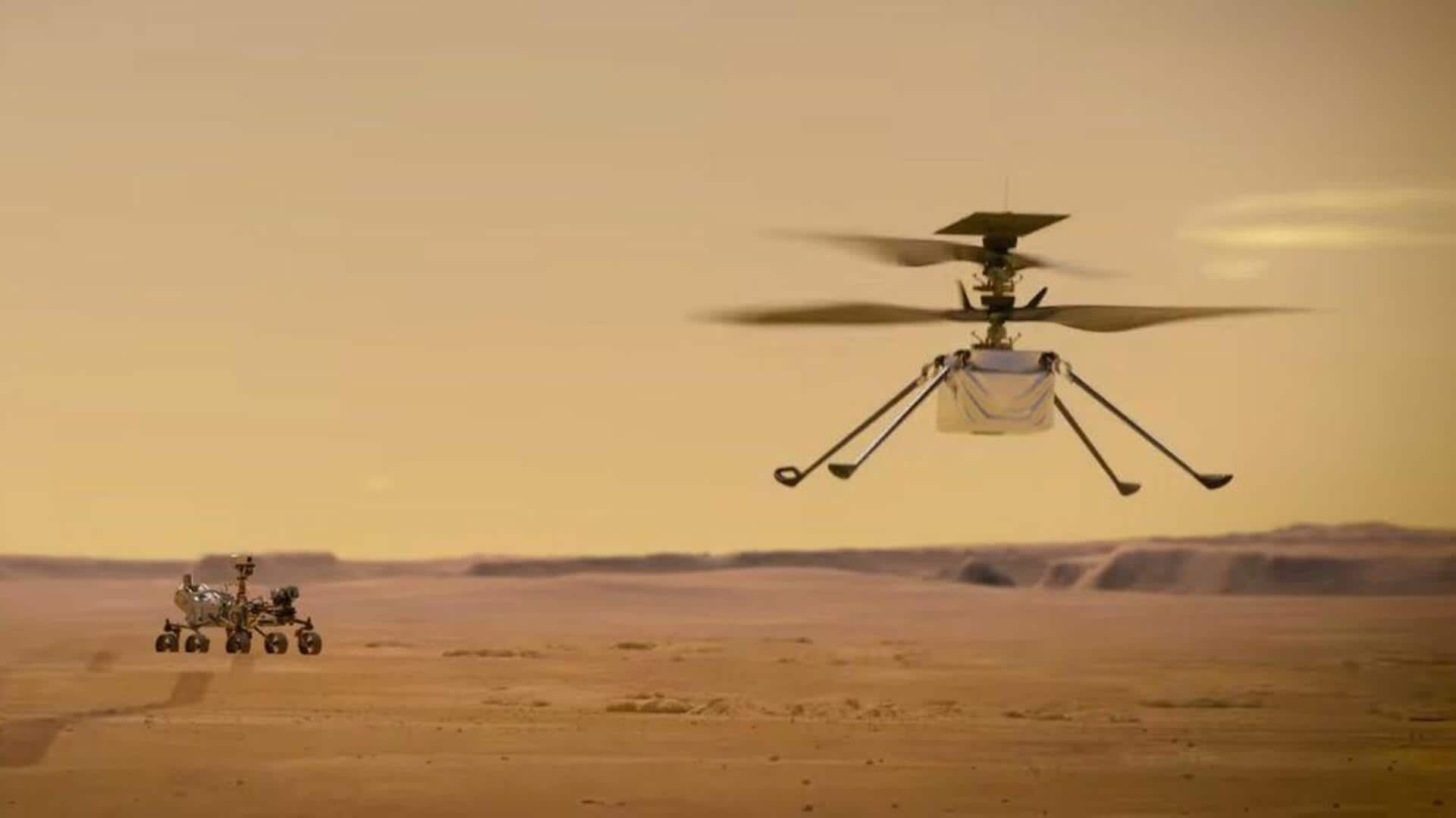
NASA explains why Ingenuity helicopter crashed on Mars
What's the story
NASA's Ingenuity helicopter, which had successfully completed 72 flights on Mars, crashed due to a software glitch. The incident took place during its final flight on January 18, 2024, when the helicopter lost stabilization mid-maneuver and descended uncontrollably, as explained during a recent briefing. Engineers determined that the featureless Martian terrain provided insufficient data for navigation systems, contributing to the crash.
Investigation hurdles
Challenges and insights from crash
Havard Grip, Ingenuity's first pilot at NASA's Jet Propulsion Laboratory, emphasized the challenges of probing the crash from a distance: "When running an accident investigation from 100 million miles away, you don't have any black boxes or eyewitnesses." The probe found that navigation errors due to lack of surface texture resulted in high horizontal velocities at touchdown. This made Ingenuity pitch and roll on landing, causing rotor blade failure and loss of communication with Earth.
Continued impact
Ingenuity's ongoing contribution and influence on future missions
Despite being grounded, Ingenuity still delivers valuable data on a weekly basis to the Perseverance rover. Ingenuity's project manager Teddy Tzanetos said the mission has inspired further innovations: "Because Ingenuity was designed to be affordable while demanding huge amounts of computer power, we became the first mission to fly commercial off-the-shelf cellphone processors in deep space." This is shaping ongoing research into smaller, lighter avionics for future missions.
Future prospects
Ingenuity's legacy and future Mars exploration
Ingenuity exceeded its original mission objectives of five flights in 30 days by completing 72 flights in almost three years. This has paved the way for future aerial exploration on Mars. NASA is now developing a conceptual Mars Chopper, an advanced helicopter that can carry payloads and traverse difficult terrains. The new design imagines a six-rotor vehicle roughly SUV-sized, carrying up to 4.99kg and and cover distances of 3km per Martian day.
Joint venture
Mars chopper: A collaboration for advanced exploration
The Mars Chopper concept is a collaborative effort of NASA's Jet Propulsion Laboratory, Ames Research Center, and AeroVironment Inc. Speaking at the American Geophysical Union's annual meeting in Washington, NASA stressed that the lessons learned from Ingenuity will inform the development of the Mars Chopper. The new rotorcraft will autonomously explore distant Martian locations while carrying scientific instruments.